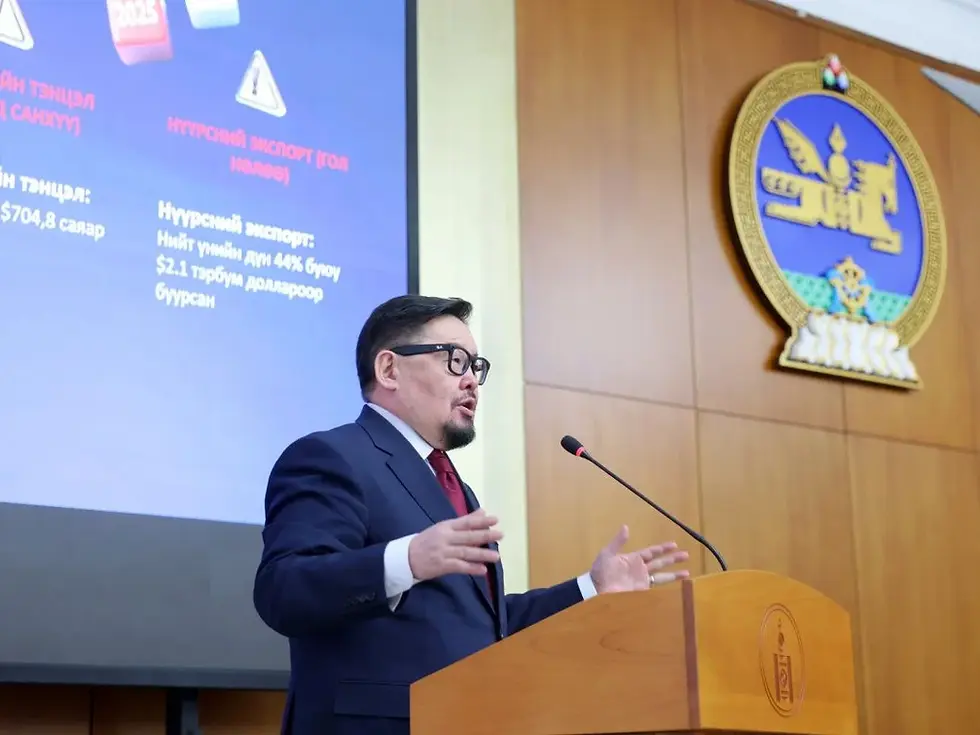Mongolia's Critical Mineral Strategy Eyes Key Supply Chain Role
- Mongolia Weekly

- Sep 7, 2023
- 3 min read
Updated: Sep 9, 2023
Mongolia wants to become a global destination for critical minerals. Now it's working on a new law to get there. The global push to reduce carbon emissions in the global economy is creating an unprecedented demand for electric vehicles and the critical minerals required to fuel them.
Mongolia is ideally positioned to prosper in this scenario with its abundance of critical minerals such as rare earth, lithium and copper - essential for energy transition technologies.

The country is contemplating a regulatory framework for its critical mineral sector, with the introduction of Chapter VIII in the new draft mineral law in the upcoming Fall session of the parliament.
This chapter outlines overarching requirements and defines the state's role in fostering the development of the critical mineral sector.
For the first time, the mineral law introduces the term "critical minerals" and mandates the compilation of a government-approved list of such minerals. The potential involvement of lawmakers and the Parliament in the list's approval could add a political dimension to the issue. The Ministry of Mining officials would be tasked with drafting the list.
In a noteworthy shift, the proposed bill reportedly replaces the longstanding term "strategically important deposits" with the new phrase "minerals of strategic importance." This change is poised to have substantial implications for Mongolia's nascent critical mineral regime.
With the Fall session of the parliament commencing on October 1, 2023, the mineral law bill takes center stage on the legislative agenda.
It shares the spotlight with eagerly anticipated bills addressing land usage and the establishment of a national wealth fund, both of which possess the potential to reshape Mongolia's mineral regulatory landscape.
The land bill is anticipated to introduce measures that would liberalize land usage for foreign entities. This proposal, however, remains a sensitive topic, as it touches on concerns of encroachment by neighboring China. A prior attempt to table the bill was met with significant domestic opposition.
Policymakers aim to strike a balance by fostering foreign investment through land liberalization while maintaining Mongolia's sovereignty and safeguarding its interests. All these efforts would be key to Mongolia's critical mineral strategy.
Acquiring rare earth element (REE) licenses used to involve a rigorous process, requiring approval from the National Security Council and the Cabinet due to their classification as radioactive elements.
The new bill may help to streamline the process and improve the regulatory environment for investors.

The scarcity of REE deposits, coupled with their concentration in technologically advanced countries, presents a challenge for Mongolia's entry into the global market.
In June 2023, Ulaanbaatar took a significant step by signing an MoU with the United States, setting the stage for American assistance in developing a critical mineral strategy. This move comes as a response to the United States' recognition of its vulnerability to disruptions in critical mineral supply chains.
The MoU aims to strengthen collaboration between the two countries in securing these vital resources. Mongolia's new strategy for critical minerals must also address investor concerns and clearly signal that the country is open for business.
Subscribe to Mongolia Weekly and receive a premium newsletter each week featuring in-depth analysis and commentary on politics and policy in Mongolia. Don't miss out on this valuable insight. Use promo code MW97 to get your first month for just $0.90. Stay informed and empowered with our exclusive insights!



Comments